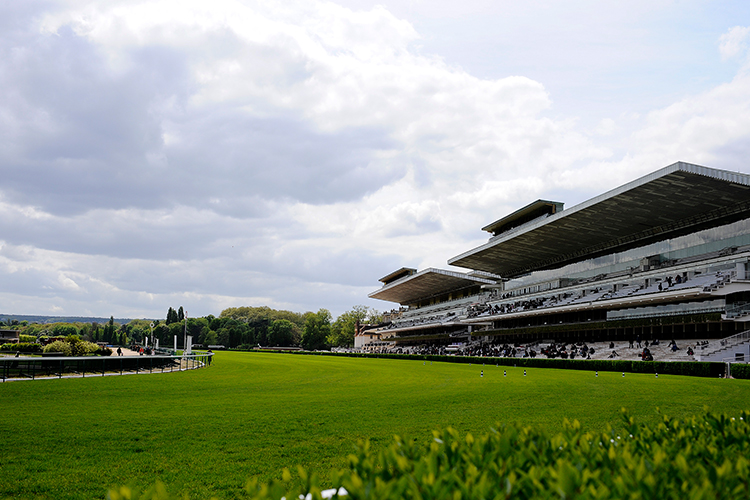Horse racing is the second largest spectator sport in Great Britain, followed by football.
Despite the popularity and centuries of established history, the future of horse racing in the UK has been in a state of limbo, with the British Horseracing Authority (BHA) initiating many discussions regarding the future of horse racing to create a long-term strategic plan.
Many significant moves have been made that focus on modernising and improving the sport, while ensuring the safety of both the players and the animals. In the past few years, the British Horseracing Authority has introduced several new rules which are slowly being implemented. Below is a detailed look at the new rules and their implications on the industry:
Whip rules and penaltiesWhip rules seem to be the most focused and talked-about aspect of this sport due to the involvement of animals and how the sport is viewed. This makes the changes in the whip rules one of the most significant changes to take place in recent times.
The new whip rules outlined below aim to keep the use of the whip both judicious and considered to ensure the welfare of the horse and improve the perception of the sport when it comes to spectators.
In order to reduce excessive use of the whip on horses and to promote responsible riding practices, the maximum number of times a jockey can use the whip has been lowered to six times in a flat race and seven times in a jump race.
While the number of times for using a whip has been reduced, the penalties for misusing the whip have been increased. The penalties include using the whip over shoulder height and not providing the horse enough time to respond to the whip, while significant infractions like using the whip more than four times over the permitted limit can lead to disqualification.
To ensure consistent enforcement of these rules, a Whip Referral Committee has been established. The British Horseracing Authority has also removed the discretionary power of stewards. This means that all instances of whip usage will be counted towards the limit unless clearly used for safety purposes.
Equine welfare enhancementsThe British Horseracing Authority has introduced new regulations to improve equine health and safety that are in line with the global standards and welfare discussions.
The Equine Influenza Vaccinations intervals have been updated for both the primary course and booster intervals. As per this update, all racehorses must be inoculated with six-monthly boosters, which is similar to other major racing nations.
In order to ensure more humane treatment for the horses at the end of their race career, all the racehorses in Britain are required to be signed out of the human food chain through their passports. This rule demonstrates the industry's commitment towards better welfare standards and its ethical stance.
Rule accessibilityIn a comprehensive move by the British Horseracing Authority, the rules have been rewritten to ensure they are simpler, making them easily accessible and easy to understand by both the participants and general public. This effort, which has been ongoing since 2016, focuses on the language of the rules by clarifying them and improving their structure, while ensuring that substantial changes aren't made.
The current version of the rules can be found here.
Fixture and schedulingIn addition to the above changes, the 2024 fixtures and scheduling have also been updated to ensure the sport sees better engagement and public appeal.
As part of the new schedule, high-stakes races with significant prize money that aim to attract top talent and provide a spectacle for the fans have been introduced. These premier race days will offer at least £250,000 for flat races and £200,000 for jump races.
In a bid to explore new audience engagement opportunities and provide more flexible viewing options for fans, Sunday evening trial races have also been implemented.
Recent minor changesIn addition to the above changes, there were also a few, significant minor changes that have been implemented over the past few months:
- Trainers may request that hair and blood samples of new horses be taken for analysis for Category A Prohibited. This move acts as an extra layer of protection for trainers to provide confidence that a new arrival is not putting them at risk of an adverse analytical finding.
- The Vaccinations Code has also been updated to confirm no horse can enter onto racecourse property within seven days of vaccinations being administered.
- The use of ice on horses in the racecourse is now prohibited upon arrival unless permitted by a veterinarian.
- The removal of sensory hair, also known as whiskers, is prohibited, bringing this standard in line with other major disciplines
- From 1 July, lip chains can only be used if the chain is covered and connected to a lead rope which is under the control of a handler on the ground.
Future outlook
While the introduction of the above rules makes sense in terms of animal welfare and improving the safety in the sport, there were a range of reactions from different stakeholders in the industry. Some jockeys and trainers have expressed concerns regarding the practicality of the new rules, such as the use of the whip and its effect on the strategy of the game.
The British Horseracing Authority also faces some friction due to a recent survey that indicates British horseracing could experience a significant drop in bettors if intrusive affordability checks were introduced by the Gambling Commission. This indicates that they will need to balance regulatory measures with ensuring the sport's economic health.
The focus of this move is to assess if bettors can afford this betting hobby if they sustain losses. If you are new to betting on horse racing, one way to reduce losses is by going through a comprehensive guide and understanding the different types of bonuses, reputable websites, tips and rules before placing a bet on horse racing.
The latest news from the British horse racing world is that the City of Troy pulled out all the stops to claim Coral-Eclipse glory. For more of the latest news on the sport, follow Racing and Sports UK.




